CRM Check List and Approval Process v.13
The tool to make sure required jobs are carefully done on this pipeline stage
Stage-specific checklists
Fulfillment progress is shown on opportunities kanban and form views for instant overview.
Screenshots
Opportunity check list per stages
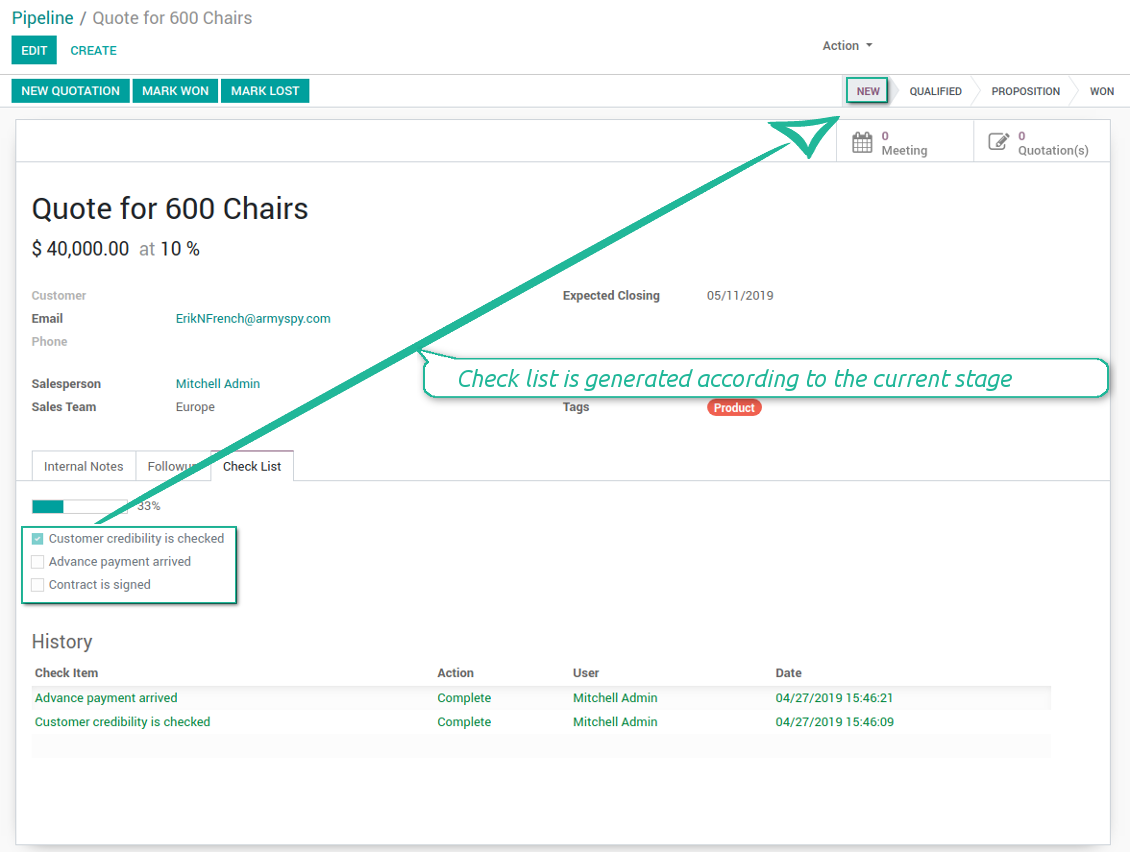
Opportunity stage check lists
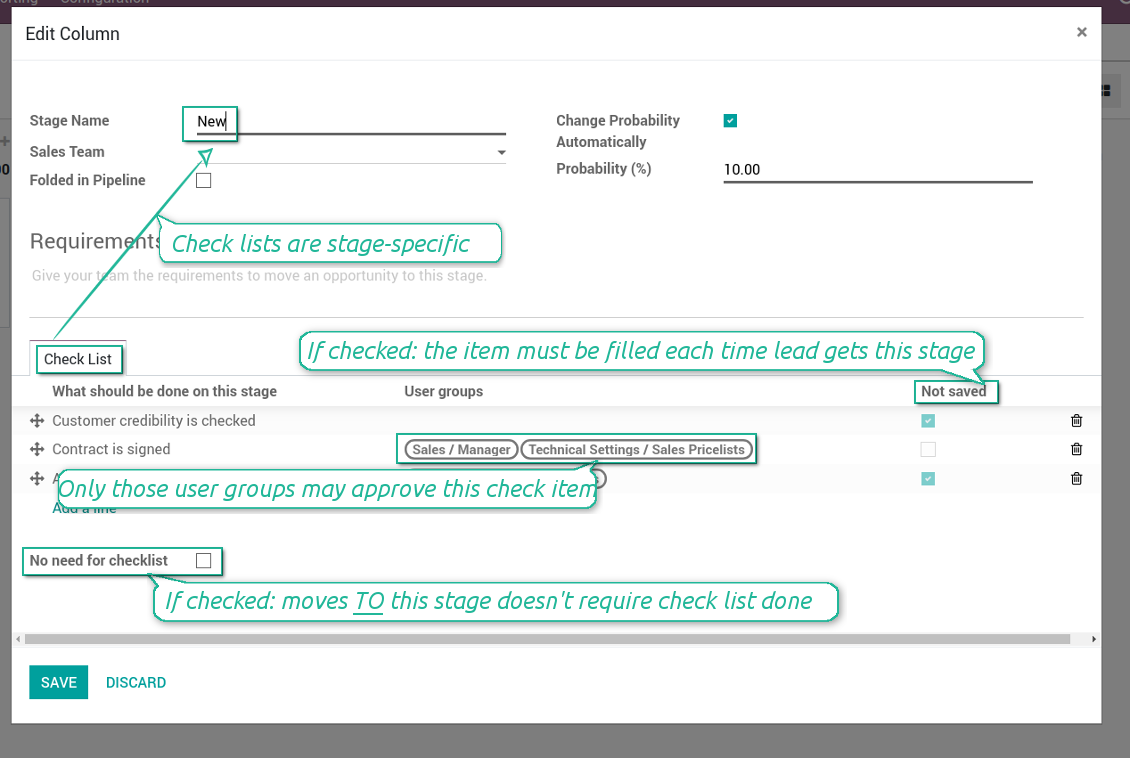
Opportunities check list progress kanban view
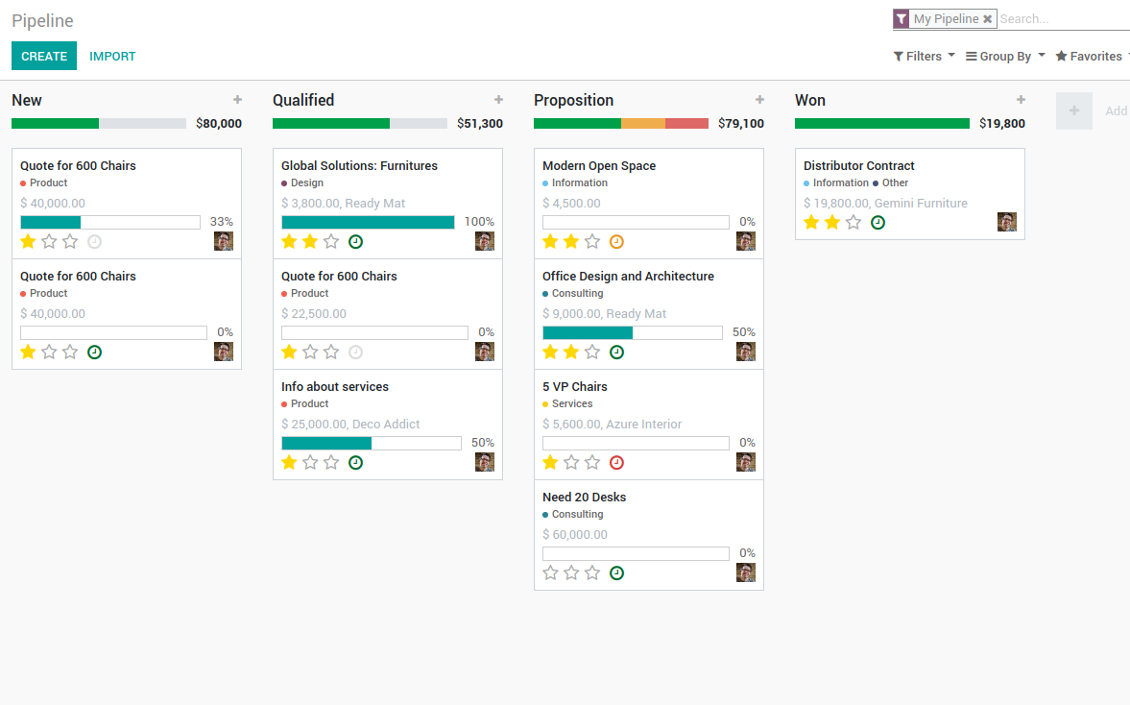
Check list tree view
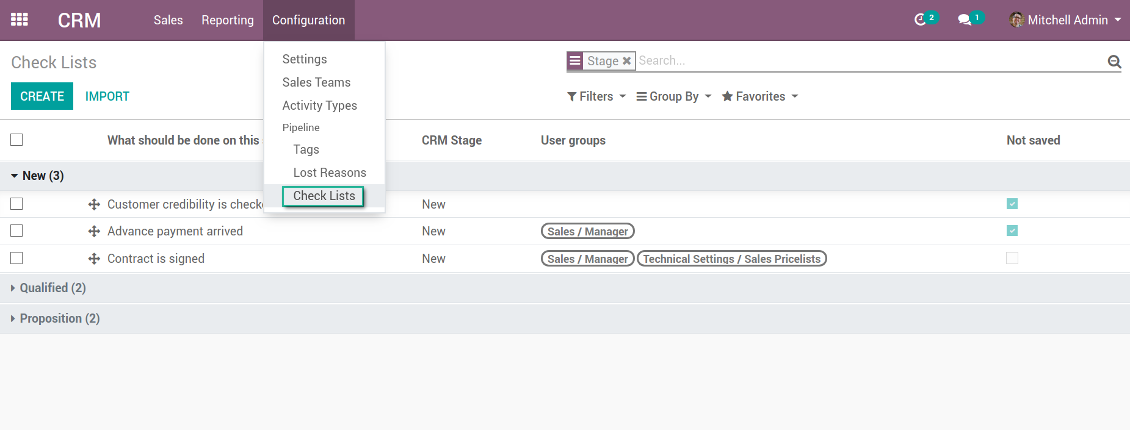
All required actions are ensured to be done
To move a CRM lead forward in your funnel, a check list should be fully confirmed. By 'moving forward' any change of stage with lesser sequence to a bigger sequence is implied.
For some situations you do not need a check list fulfillment even a new stage is further. For example, for the 'Cancelled' state. In such a case just mark this stage as 'No need for checklist'.
Screenshots
Check list to be confirmed before moving an opportunity further
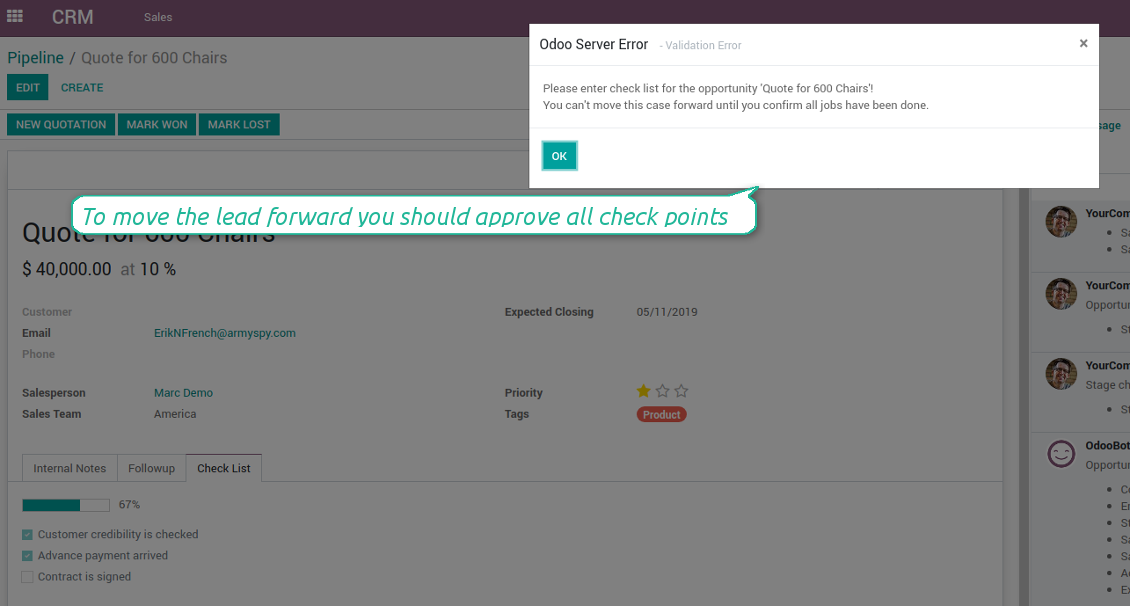
Multiple approval roles
The tool simultaneously let you grant users with the super check list rights. Then, such users would be able (a) to confirm any check points disregarding defined security groups and (b) to move any opportunity further without fulfilling check lists.
Screenshots
Approval process distributed by various user roles
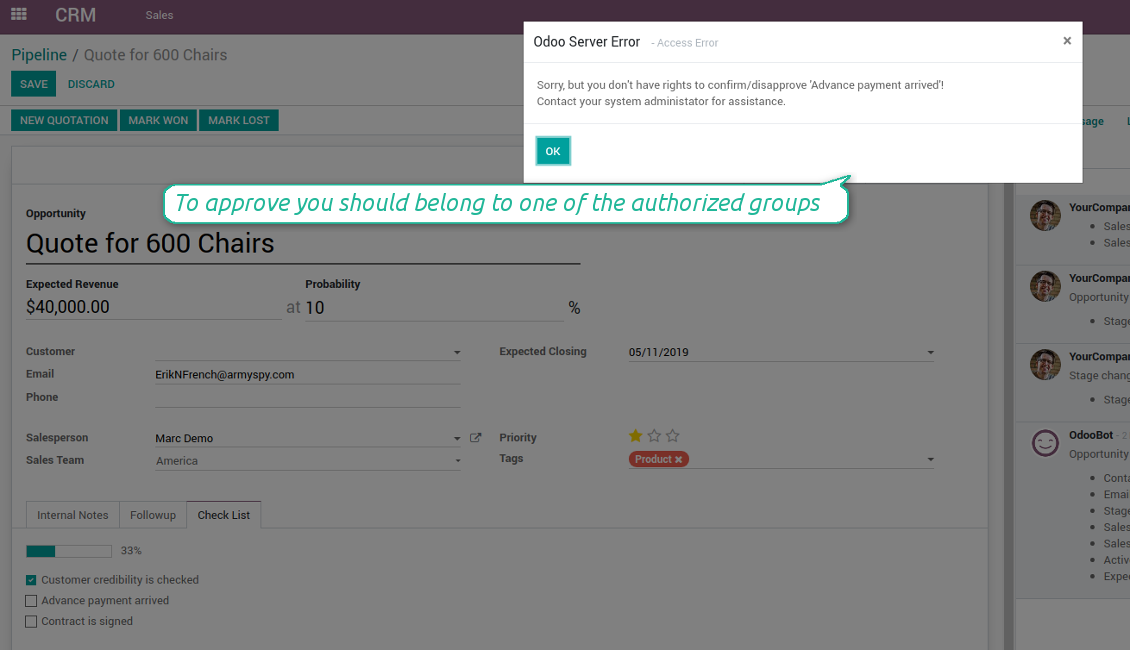
The super rights to approve any check items and move opportunities
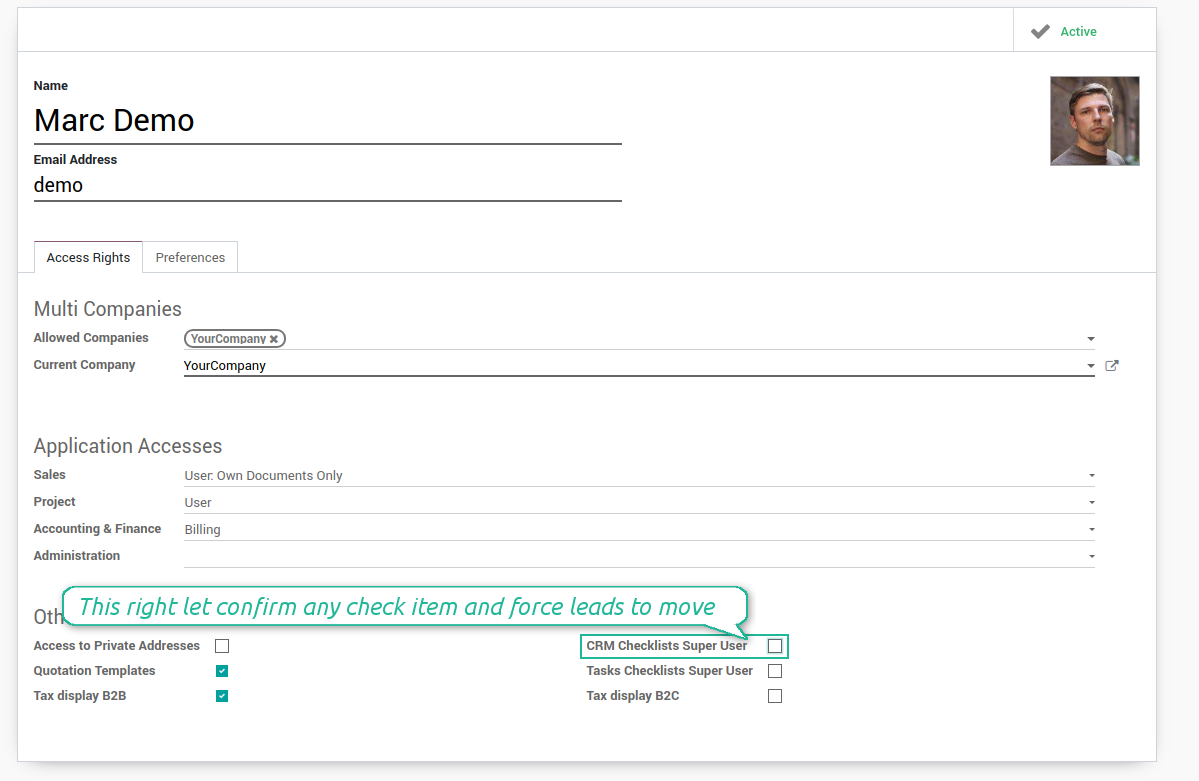
Approval history is kept for managerial control
However, in case the 'not saved' option is set for the item up, the point should be approved each time from scratch.
Bug reporting
If you encounter bugs or inconsistent behavior, do not hesitate to contact us. We guarantee to provide fixes within 60 days of purchase and are intensely interested in improving our tools even after this period.
You do not need a phone number or credit card to contact us. You should only pass a short email sign-up, which does not take more than 30 seconds.
Please include as many details as possible in your request: screenshots, Odoo server logs, a full description of how to reproduce your problem, and so on. Usually, it takes a few business days to prepare a working plan for an issue (if a bug is confirmed) or provide you with guidelines on what should be done (otherwise).
Public features requests and module ideas (free development)
We are strongly motivated to improve our tools and would be grateful for any feedback. If your requirements are of public use and might be efficiently implemented, the team will include those in our to-do list.
Such a to-do list is processed regularly and does not assume extra fees. Although we cannot promise deadlines and final design, it might be a good way to get desired features without investments and risks.
You do not need a phone number or credit card to contact us. You should only pass a short email sign-up, which does not take more than 30 seconds.
The technical core to synchronize your cloud storage solution with Odoo
398€The tool to build deep and structured knowledge base for internal and external use. Knowledge System. KMS
248€The tool to set up KPI targets and control their fulfillment by periods
The tool to automatically synchronize Odoo attachments with OneDrive files in both ways
487€The tool for time-based service management from booking appointment to sale and reviews
The tool to automatically synchronize Odoo attachments with Google Drive files in both ways
487€The tool to add new fields for Odoo CRM opportunities without any technical knowledge
38€The tool to notify salespersons of topical activities by leads and opportunities
18€